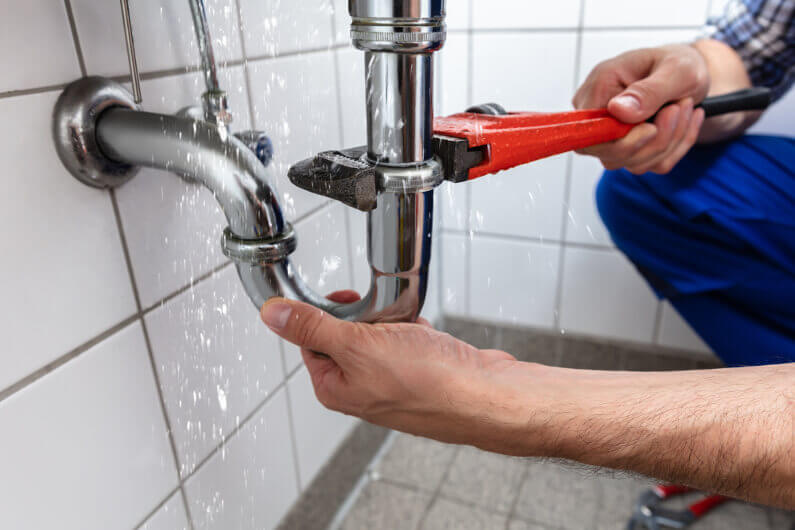While there are simple plumbing tasks that homeowners can handle independently, many plumbing issues require expertise. Attempting to tackle complex plumbing problems without the proper knowledge leads to costly mistakes. Many homeowners believe that tackling plumbing issues can save money on labour costs. DIY enthusiasts think they can resolve the problem quicker than waiting for a professional plumber to arrive.
Risks of DIY plumbing
- Plumbing systems are complex and require a deep understanding of their function. Inexperienced individuals may need help accurately diagnosing the root cause of a plumbing problem. Improper repairs lead to leaks, water damage, and structural issues.
- Professional plumbers invest in high-quality, specialised tools designed for specific tasks. Using the wrong tools or improvising with makeshift solutions can damage pipes and fixtures.
- Misdiagnosing a plumbing issue or applying the wrong solution exacerbates the problem, leading to more extensive and expensive repairs. Improper installation causes leaks, water damage, and even flooding. In some cases, DIY plumbing mistakes may not be covered by homeowners insurance, leaving you responsible for the total cost of repairs.
- Plumbing systems are closely tied to the health and safety of a household. Incorrect repairs lead to water contamination, posing a risk to your family’s health. Gas leaks from improperly installed or repaired gas lines can cause fires, explosions, and carbon monoxide poisoning.
- Plumbing work is subject to local building codes to ensure the safety of the system. DIY plumbing projects may unknowingly violate these codes, leading to fines, legal issues, and potential problems when selling your home.
When to call in the professionals?
- If you’ve attempted to fix a leak, but it keeps returning, it’s time to call a professional plumber and resolve the underlying issue.
- Gradual decreases in water pressure indicate hidden leaks, pipe corrosion, or water main issues. A professional plumber diagnoses the cause and recommends the appropriate solution.
- While minor clogs can often be resolved with a plunger or drain snake, persistent or severe blockages require the expertise of a plumber. Attempting to clear a deep clog with chemical drain cleaners can damage pipes and pose health risks.
- A professional should address problems with water heaters, as Improper water heater repairs lead to explosions and gas leaks.
- Sewer line issues are not only unpleasant but can also pose significant health hazards. Professional plumbers have the equipment and expertise to diagnose and repair sewer line problems.
- Working with a licensed plumber is essential if you plan a bathroom or kitchen renovation involving moving or installing new plumbing fixtures. Proper installation ensures the longevity of your new fixtures while avoiding costly mistakes and code violations.
Benefits of professional plumbing services
- Licensed plumbers undergo extensive training and have years of experience diagnosing and resolving various plumbing issues. They possess the knowledge to tackle the most complex plumbing problems efficiently.
- Professional plumbers can access specialised tools and equipment for specific plumbing tasks. These tools allow them to complete repairs precisely by minimising the risk of damage.
- Hiring a professional plumber may seem expensive, but it saves you money in the long run. Correctly diagnosed and repaired plumbing issues are less likely to recur, and professional installations are more durable and efficient, reducing the likelihood of future problems.
While tackling plumbing issues on your own may be tempting. The consequences of improper plumbing repairs are severe. It’s always best to call in the professionals. If you encounter a plumbing issue, don’t hesitate to contact a trusted plumbing company. Call Us Now at 865-224-8639 to speak with a knowledgeable representative who can connect you with a skilled, licensed plumber.

